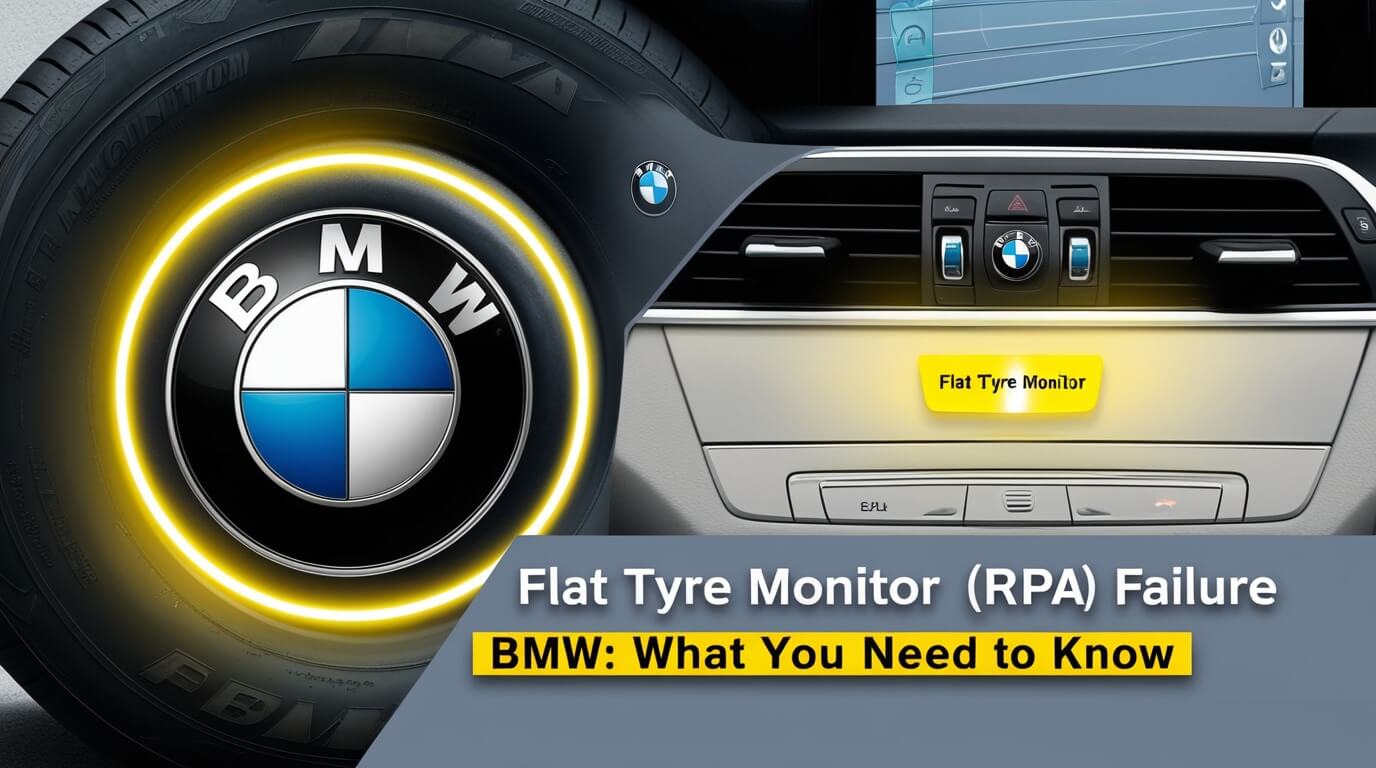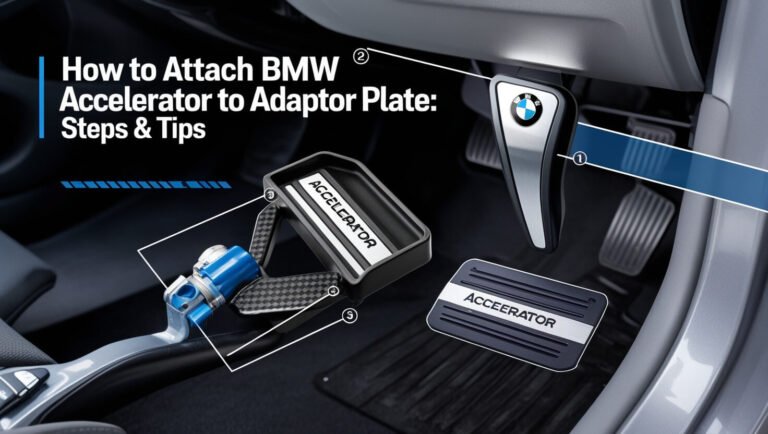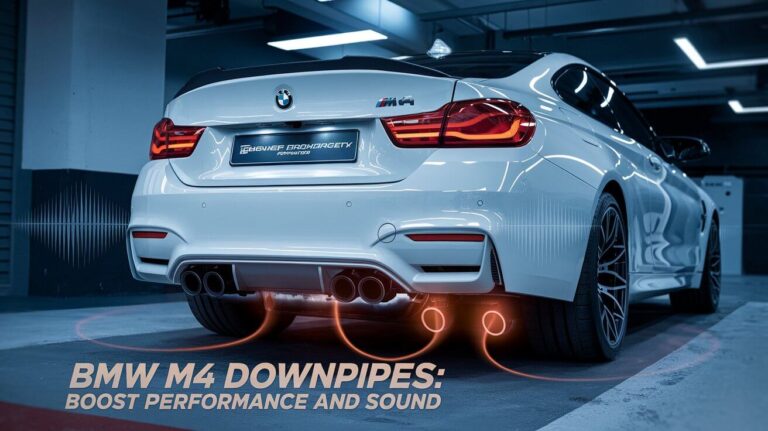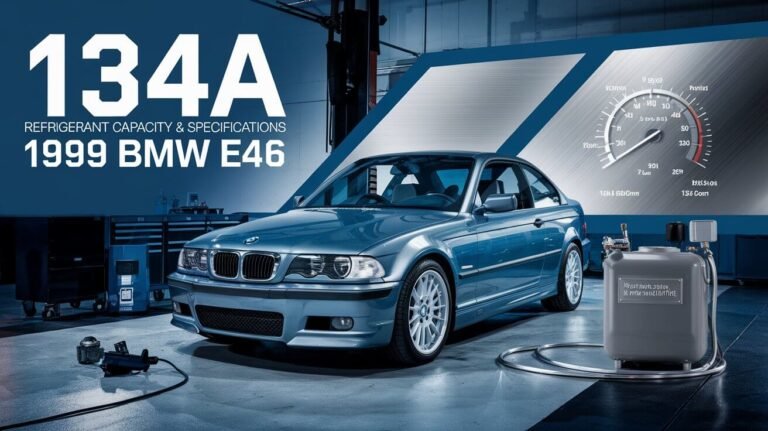
BMW’s Flat Tyre Monitor (RPA) is a safety system that alerts drivers to potential tire pressure issues. When it fails, it can leave you unsure about your tires’ condition. This article covers everything from how RPA works to common failures, fixes, and alternatives for BMW owners.
BMW’s Flat Tyre Monitor (RPA)
BMW’s Flat Tyre Monitor, or RPA (Reifendruckkontrolle in German), is a smart system that keeps an eye on your tires. Unlike traditional tire pressure monitoring systems (TPMS), RPA doesn’t use direct sensors in each tire. Instead, it cleverly uses your car’s ABS sensors to spot changes in wheel rotation speeds, which can signal a loss of tire pressure.
How RPA differs from TPMS
RPA and TPMS have the same goal: keeping you safe by monitoring tire pressure. But they work differently:
- RPA uses existing ABS sensors
- TPMS has separate sensors in each tire
- RPA is generally less accurate but cheaper to maintain
- TPMS gives real-time pressure readings but costs more to repair
Benefits of RPA in BMW vehicles
RPA offers several perks for BMW drivers:
- Lower maintenance costs
- No separate sensors to replace
- Works with any type of tire
- Less prone to sensor failures
Common Causes of BMW RPA Failure
Even smart systems can have issues. Here are the main culprits behind RPA failures:
Sensor malfunctions
While RPA doesn’t have dedicated tire sensors, it relies on ABS sensors. If these fail, your RPA system might too. Signs of sensor trouble include:
- Erratic speedometer readings
- ABS light coming on
- Traction control acting up
Electrical system issues
Your BMW’s RPA is part of a complex electrical network. Problems here can throw off the system:
- Faulty wiring
- Blown fuses
- Battery issues
Software glitches
Like your smartphone, your car’s systems need updates. Software bugs can cause RPA headaches:
- False alarms
- Failure to detect real pressure drops
- System freezes or crashes
Symptoms of BMW Flat Tyre Monitor Failure
Spotting RPA issues early can save you trouble down the road. Watch out for these signs:
Warning lights on the dashboard
- RPA warning light stays on
- ABS light comes on with no apparent brake issues
- Multiple warning lights flashing together
Inaccurate tire pressure readings
- System warns of low pressure when tires are fine
- No warnings even with visibly low tires
System reset difficulties
- Can’t reset the RPA after filling tires
- Reset option greyed out in the iDrive system
Diagnosing RPA Failures in BMW Models
Before rushing to a mechanic, try these steps to pinpoint the problem:
Self-diagnosis steps
- Check your tires manually with a pressure gauge
- Look for visible damage to wheels or tires
- Try resetting the system through your iDrive
- Check for related warning lights (ABS, DSC)
Professional diagnostic tools
For tougher cases, pros use specialized gear:
- OBD-II scanners with BMW-specific codes
- Wheel speed sensor testers
- Electrical system analyzers
Fixing BMW Flat Tyre Monitor (RPA) Issues
Many RPA problems have simple fixes. Others need a pro’s touch. Here’s how to tackle both:
DIY troubleshooting tips
- Reset the system: Often, a simple reset through your iDrive can clear up minor glitches.
- Check fuses: A blown fuse can knock out your RPA. Check your manual for fuse locations.
- Update your software: Some BMW models let you update the iDrive system yourself.
- Clean ABS sensors: Dirt on these sensors can confuse your RPA. A gentle cleaning might help.
When to seek professional help
Call in the experts when:
- Warning lights persist after DIY fixes
- You suspect electrical or sensor failures
- Your car is still under warranty (let BMW handle it!)
Preventing Future RPA Failures in Your BMW
An ounce of prevention is worth a pound of cure. Keep your RPA happy with these tips:
Regular maintenance practices
- Rotate your tires regularly
- Keep tires properly inflated
- Have your ABS system checked during services
Software updates
- Stay on top of BMW’s software updates
- Consider a yearly digital health check at your dealer
Cost Implications of BMW RPA Repairs
Fixing RPA issues can hit your wallet in different ways. Here’s what to expect:
DIY vs. professional repair costs
- DIY resets and fuse changes: Nearly free
- Professional diagnostics: $50-$200
- ABS sensor replacement: $200-$400 per sensor
- Full system replacement: Up to $1000 or more
Warranty coverage for RPA issues
Good news! Many RPA problems are covered under BMW’s warranty:
- New BMWs: 4-year/50,000-mile warranty usually covers RPA
- Certified Pre-Owned: Often includes 1-year/unlimited mile warranty
- Extended warranties: May cover RPA, check your policy
BMW Models Most Affected by RPA Failures
While any BMW can have RPA hiccups, some models seem more prone:
Common BMW series with RPA issues
- 3 Series (E90/E91/E92/E93): 2005-2011 models
- 5 Series (E60/E61): 2003-2010 models
- X3 (E83): 2003-2010 models
- X5 (E70): 2006-2013 models
Model years to watch out for
- 2006-2008: Early RPA systems had more bugs
- 2011-2013: Some models had software glitches
- 2015-2017: A few cases of sensor integration issues
RPA vs. TPMS: Which is Better for Your BMW?
Both systems have their strengths. Let’s break it down:
Pros and cons of each system
RPA Pros:
- Lower long-term costs
- No tire sensors to replace
- Works with any tire type
RPA Cons:
- Less accurate
- Can’t give exact pressure readings
- Might miss slow leaks
TPMS Pros:
- More accurate pressure readings
- Can detect slow leaks earlier
- Meets stricter safety regulations
TPMS Cons:
- Higher repair costs
- Sensors need replacing every 5-7 years
- Can be fussy with aftermarket wheels
Upgrading options for older BMW models
Some older BMWs with RPA can be upgraded to TPMS:
- Retrofit kits available for many models
- Professional installation recommended
- Cost: $300-$800 depending on the model
Future of Tire Pressure Monitoring in BMW Vehicles
BMW isn’t resting on its laurels. The future of tire monitoring looks exciting:
Upcoming technologies
- Integration with BMW’s ConnectedDrive
- Predictive tire wear analysis
- Automatic tire pressure adjustment systems
BMW’s commitment to safety innovations
BMW continues to push the envelope:
- AI-driven tire monitoring
- Integration with autonomous driving systems
- Sustainable tire technologies with built-in sensors
Wrapping Up
BMW’s Flat Tyre Monitor (RPA) plays a crucial role in keeping you safe on the road. While it can sometimes act up, understanding its quirks and how to address them ensures you’re always rolling on safe rubber. Whether you stick with RPA, upgrade to TPMS, or wait for BMW’s next big innovation, staying informed is key.
Remember, your tires are your car’s only connection to the road. A well-functioning RPA or TPMS is just one part of tire safety. Regular checks, proper inflation, and timely replacements are all part of responsible BMW ownership. Stay safe, and enjoy the ultimate driving machine as BMW intended!






